Unlock your true potential with expert psychological guidance. We help you build balance, resilience, and optimal mental well-being for a healthier, happier life.



Worried where to find Best Psychiatrist near me or Best Psychiatrist in Thane – Dr.Anuja Kelkar with over 12 years of experience, is one of the Best Female Psychiatrist in Thane and Mira Road with patient admission facility at own place Insight Mind Care Center (IMCC) , Thane.

Connect with experienced mental health professionals swiftly, ensuring timely support and care.
Take the first step towards a healthier mind with a no-cost initial consultation.
Convenient scheduling options to fit therapy into your busy lifestyle.
Holistic, personalized mental health care designed to support your well-being at every step.
At Kelkar Clinic & Insight Mind Care Centre, our mission is to provide compassionate, evidence-based mental health care that empowers individuals to lead fulfilling lives. We are committed to reducing stigma, promoting awareness, and offering personalized treatments that cater to each patient’s unique needs.
To be a leading mental health care provider, offering accessible, innovative, and holistic psychiatric solutions that enhance overall well-being. We strive to create a supportive environment where mental health is prioritized, understood, and nurtured.
We believe mental health is as vital as physical health. Through compassion, understanding, and professional care, we aim to break stigma, promote awareness, and empower individuals to heal, grow, and thrive. Together, we create a safe space where every mind is valued, supported, and nurtured towards well-being
At Kelkar Clinic & Insight Mind Care Centre, we provide expert care for depression, anxiety, addiction, epilepsy, memory issues, and more. Our holistic approach ensures personalized treatment, advanced therapies, and compassionate support to help you achieve mental well-being.

If the physical examination and medical reports are normal then probably the cause is psychological .Many times psychological problems are presented as bodily conditions. Proper treatment from Psychiatrist can solve the problem.

Dementia is the loss of cognitive functioning-thinking, remembering, and reasoning and behavioral abilities to such an extent that it interferes with a person's daily life and activities. These functions include memory, language skills, visual perception, problem solving, self-management, and the ability to focus and pay attention. Some people with dementia cannot control their emotions, and their personalities may change.

Depression is a mental health disorder that affects a person's mood, thoughts, and daily functioning. It is more than just feeling sad or going through a temporary emotional low. Depression is characterized by persistent feelings of sadness, hopelessness, and a loss of interest or pleasure in activities that were once enjoyed.

An eating disorder is a mental disorder defined by abnormal eating habits that negatively affect a person's physical or mental health. They include binge eating disorder, where people eat a large amount in a short period of time; anorexia nervosa, where people eat very little due to a fear of gaining weight and thus have a low body weight; bulimia nervosa, where people eat a lot and then try to rid themselves of the food; pica, where people eat non-food items; rumination syndrome where people regurgitate food; avoidant restrictive food intake disorder , where people have a lack of interest in food; and a group of other specified feeding or eating disorders. Anxiety disorders, depression and substance abuse are common among people with eating disorders. These disorders do not include obesity.

People who have gender dysphoria feel strongly that their gender does not match their biology. Gender identity disorder is a condition characterized by a persistent feeling of discomfort or inappropriateness concerning one's anatomic sex. The disorder typically begins in childhood with gender identity problems and is manifested in adolescence or adulthood by a person dressing in clothing appropriate for the desired gender, as opposed to one's birth gender. In extreme cases, persons with gender identity disorder may seek gender reassignment surgery, also known as a sex-change operation.

Insomnia is a sleep disorder that is characterized by difficulty falling and/or staying asleep (Sleep disorder / Sleep wake disorder) Psychological issues can also be part of Insomnia. Restless Legs disorder is also a type of Insomnia.

Mood disorders are characterized by a serious change in mood that cause disruption to life activities. Though many different subtypes are recognized, three major states of mood disorders exist: depressive, manic(mania, Hypomania), and bipolar disorder. Manic moods are characterized by unusually high energy and mood. Feelings of euphoria are often present. These elevated moods typically last three days or more for most of the day. Classic mania symptoms include talking rapidly and/or excessively, needing significantly less sleep than normal, distractibility, poor judgment, impulsivity, and making reckless decisions. Mood disorders fall into the basic groups of elevated mood, such as mania or hypomania; depressed mood, of which the best-known and most researched is major depressive disorder (MDD) (commonly called clinical depression, unipolar depression, or major depression); and moods which cycle between mania and depression, known as bipolar disorder (BD) (formerly known as manic depression).
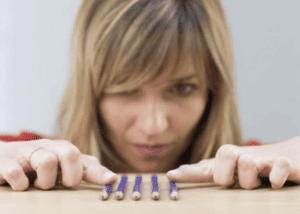
Generally anxiety is very common issue and people many times complaint about the same. Many times it happens that you feel nervous or tension at work place or when you have to make some important decision. Anxiety is a multifaceted emotional state characterized by feelings of worry, nervousness, and unease. It can manifest in various forms, ranging from mild apprehension to overwhelming panic.

A personality issue is a type of mental disorder in which you have a rigid and unhealthy pattern of thinking, functioning and behaving. A person with a personality disorder has trouble perceiving and relating to situations and people. This causes significant problems and limitations in relationships, social activities, work and school. Types of personality disorders are grouped into three clusters, based on similar characteristics and symptoms.

Schizoaffective disorder is a chronic mental health condition that involves symptoms of both schizophrenia and a mood disorder like major depressive disorder or bipolar disorder. In fact, many people with schizophrenia are incorrectly diagnosed at first with depression or bipolar disorder. Treatment for schizophrenia: Due to advancement in science there are different treatment modalities available like medicines, electroconvulsive therapy, injections.If the patient is aggressive or violent then admission is required .

Stress is a conscious or unconscious psychological feeling or physical condition resulting from physical or mental or emotional stress.

Anxiety manifests through diverse symptoms, including persistent worry, restlessness, irritability, difficulty concentrating, and tense muscles. Physical manifestations encompass increased heart rate, rapid breathing, sweating, trembling, and gastrointestinal issues. Sleep disturbances, fatigue, and a sense of impending danger or panic characterize anxiety. Avoidance behaviors, obsessive thoughts, and heightened sensitivity to triggers are common. These symptoms often disrupt daily functioning, leading to social withdrawal and diminished quality of life. Recognizing these signs aids in seeking timely support, as untreated anxiety may intensify and impact overall mental and physical health.

Bipolar disorder is a mental illness characterized by intense mood swings, swinging between manic highs and depressive lows. During manic episodes, individuals might experience elevated energy, heightened creativity, impulsivity, and sometimes risky behavior. Conversely, depressive episodes involve persistent sadness, low energy, feelings of worthlessness, and difficulty concentrating or making decisions. These mood shifts can significantly impact daily life, relationships, and work or school performance. Bipolar disorder can vary in severity and presentation, with different types such as Bipolar I, Bipolar II, and cyclothymic disorder.Bipolar disorder is a mental illness characterized by intense mood swings, swinging between manic highs and depressive lows. During manic episodes, individuals might experience elevated energy, heightened creativity, impulsivity, and sometimes risky behavior. Conversely, depressive episodes involve persistent sadness, low energy, feelings of worthlessness, and difficulty concentrating or making decisions. These mood shifts can significantly impact daily life, relationships, and work or school performance. Bipolar disorder can vary in severity and presentation, with different types such as Bipolar I, Bipolar II, and cyclothymic disorder.

If finding where to go for Paediatric occupational therapy in Thane , Dr Anuja Kelkar’s centre Beyond Possibilities has solutions of all your problems. Paediatric occupational therapy is a specialized field dedicated to supporting children in developing the foundational skills required for everyday activities and life tasks. Occupational therapists in this domain focus on assisting children who encounter challenges related to fine motor skills, sensory integration processing, social interaction, and self-care. Occupational Therapy (OT) assists people facing physical, cognitive, or emotional challenges to improve daily life skills. Therapists tailor interventions, exercises, and strategies to enhance independence in activities like self-care, work, and play, aiming to foster functional abilities and overall well-being.
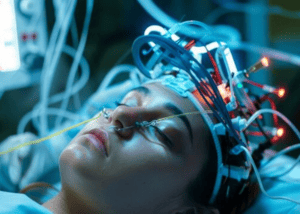
Electroconvulsive Therapy (ECT) is a medical procedure used to treat severe mental health conditions, particularly when other forms of treatment, such as medication and psychotherapy, have proven ineffective. ECT involves the controlled induction of a brief seizure by applying electrical currents to the brain. During an ECT session, the patient is under general anesthesia and receives a muscle relaxant to prevent convulsions from affecting the entire body. Electrodes are strategically placed on the scalp, and a carefully controlled electric current is administered, leading to a controlled seizure lasting about 20-60 seconds. The exact mechanisms underlying the therapeutic effects of ECT are not fully understood, but it is believed to impact neurotransmitter function and neural circuits, particularly those involved in mood regulation.
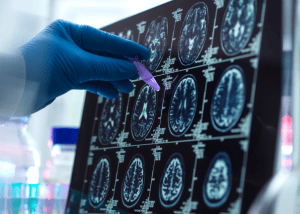
Epilepsy is a neurological disorder characterized by recurrent, unprovoked seizures. Treatment for epilepsy aims to control or reduce the frequency and intensity of seizures, improve the individual's quality of life, and prevent potential complications. The approach to epilepsy treatment often involves a combination of medication, lifestyle modifications, and in some cases, surgical interventions.

Headache problems are a common and often debilitating issue affecting people of all ages. They can be categorized into various types, each with its own set of symptoms and potential causes. These are Tension headaches, Migraines, Cluster headaches and Sinus headaches.
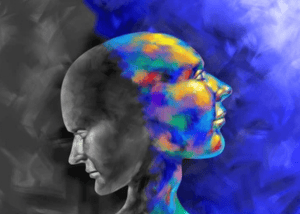
Mania is a mental health condition characterized by an elevated and persistently irritable mood, increased energy levels, and impulsivity. It is a defining feature of bipolar disorder, specifically bipolar I disorder, where individuals experience episodes of mania alternating with periods of depression.
During a manic episode, individuals often exhibit heightened self-esteem, grandiosity, and a decreased need for sleep. They may engage in risky behaviors such as reckless spending, impulsivity, and increased goal-directed activity. The individual's thoughts may race, leading to rapid speech, distractibility, and difficulty concentrating.

Memory issues encompass a range of challenges that affect an individual's ability to acquire, retain, and recall information. Short-term memory loss is a common manifestation, evident in difficulties remembering recent events, conversations, or tasks. Misplacing items and missing appointments are frequent occurrences, disrupting daily routines and causing frustration.
Long-term memory impairment involves difficulties recalling events from the distant past, impacting personal narratives and the construction of one's life story. Age-related cognitive decline is a prevalent factor contributing to memory issues, with mild forgetfulness considered a normal aspect of aging. However, severe memory problems may indicate conditions like Alzheimer's disease or other forms of dementia, affecting not only memory but also broader cognitive functions.
External factors such as stress and sleep deprivation play a role in memory problems. Chronic stress releases hormones like cortisol, which can negatively impact the hippocampus, a brain region crucial for memory formation. Lack of quality sleep interferes with memory consolidation, hindering the transfer of short-term memories into long-term storage.
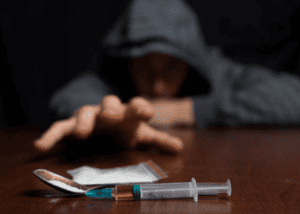
Substance abuse is a complex and widespread public health issue characterized by the harmful or hazardous use of psychoactive substances, including alcohol and illicit drugs. It encompasses a range of behaviors that lead to physical, psychological, and social harm for the individuals involved and can have significant consequences for families and communities.
Various factors contribute to the development of substance abuse, including genetic predisposition, environmental influences, mental health disorders, and socio-economic factors. People may turn to substances as a way to cope with stress, trauma, or mental health challenges, leading to a cycle of dependence and addiction.
Mental health is just as important as physical health, and it’s okay to talk about it. At Kelkar Clinic & Insight Mind Care Centre, we encourage open conversations, providing a safe and supportive space for you to share your concerns. Seeking help is a sign of strength, not weakness. Let’s break the stigma and prioritize mental well-being together.


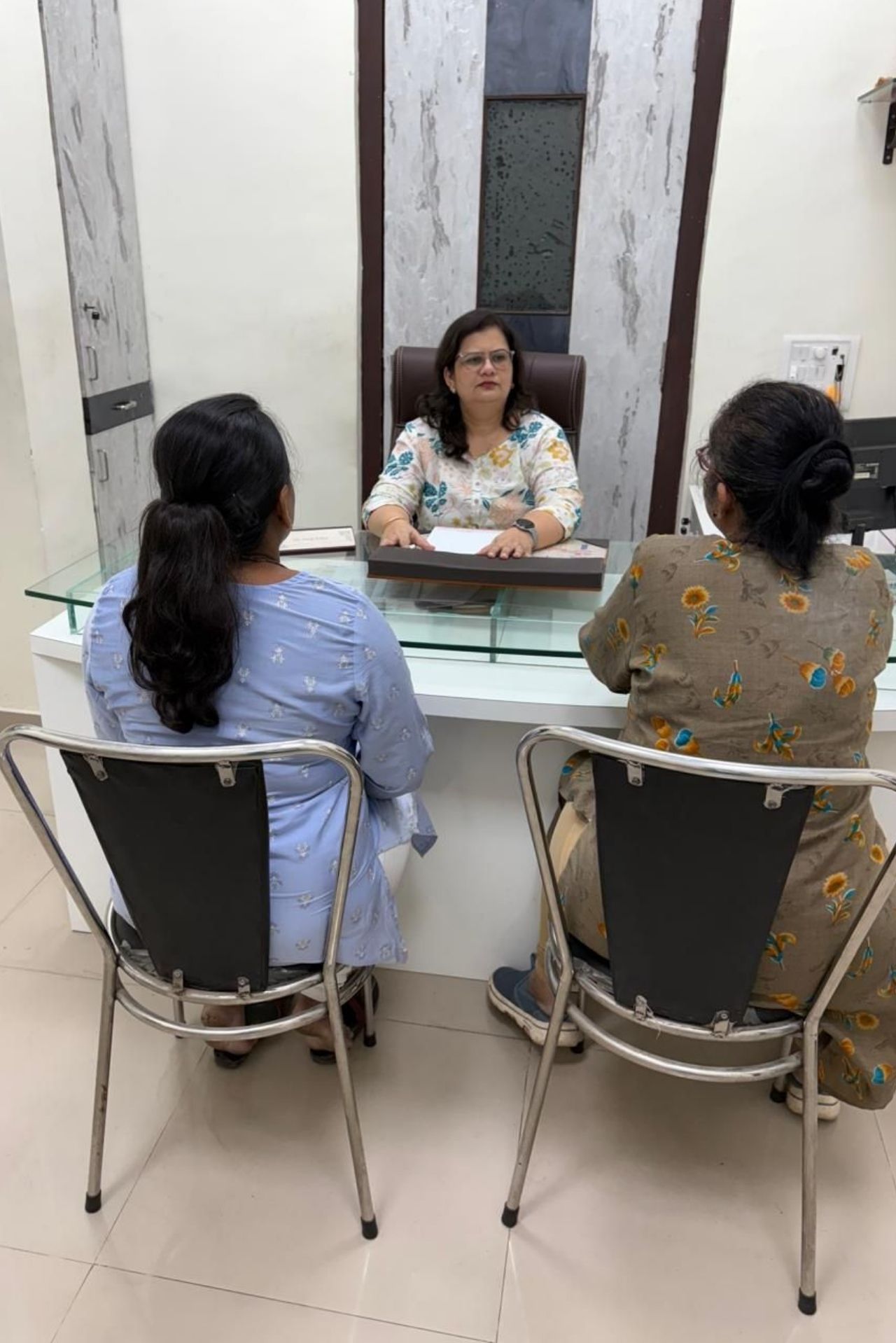


Trusted psychiatric care from highly qualified professionals
Advanced, evidence-based treatments for effective healing.
Continuous care and guidance whenever you need it.
Honest reviews from our clients who have experienced transformative therapy and compassionate care at Kelkar Clinic & Insight Mind Care Centre. See how expert guidance has helped them regain balance and well-being.
Trustindex verifies that the original source of the review is Google. I am writing this review after like almost 2 years of treatment from Dr Anuja. So I have a very the BEST psychiatric in Thane. After a sudden loss of my kid , I was in trauma and shock ..... to the extent that it started showing up in my body. Behaviour and everything. I was not even able to do my normal daily chores and constantly depressed, scared, sad, angry , hopeless and upon that unexplainable uneasiness with something happening in my body which I could not put in words. Heartbeat goes up and feels like drowsy so so much. This was the worst phase of mental health that I had experience and I pray to God that no one should ever feel this way . The hit was hard for me to handle. My family took me to several hospitals and doctors this time and all of them said it is nothing physical but only her MENTAL issues and Trauma responses. So I also went to so many psycatrics in thane ( renowned ones). Still there was no hope or improvement in my.condition. Then we tried Dr Anuja kelkar for first time in somewhere feb 2023. She was kind and understanding. Her knowledge with regards to symptoms and mental issues are very strong. She suggested the most appropriate medicines and I started feeling better with time. I am still under medication with her but trust me if u are facing any mental health issue just don't think much or waste time in researching. Take a appointment right away and meet her once . Also special thanks to Mrs Sarita joshi ( receptionist) she is very kind and accommodating towards patients and their issues. Thank you so much DR ANUJA KELKAR and the entire staff . ❤️Posted onTrustindex verifies that the original source of the review is Google. Dr. Anuja is very good psychiatrist. I got exact diagnosis, treatment for my problem and I would recommend her.Posted onTrustindex verifies that the original source of the review is Google. Clear, complete, positive & acceptable conclusions are the much needed things you get, when you communicate your difficulties with Dr. Anuja.
 Your Psychiatrist - Online
Dr. Anuja Kelkar
Your Psychiatrist - Online
Dr. Anuja Kelkar
Powered by Gigante Technologies